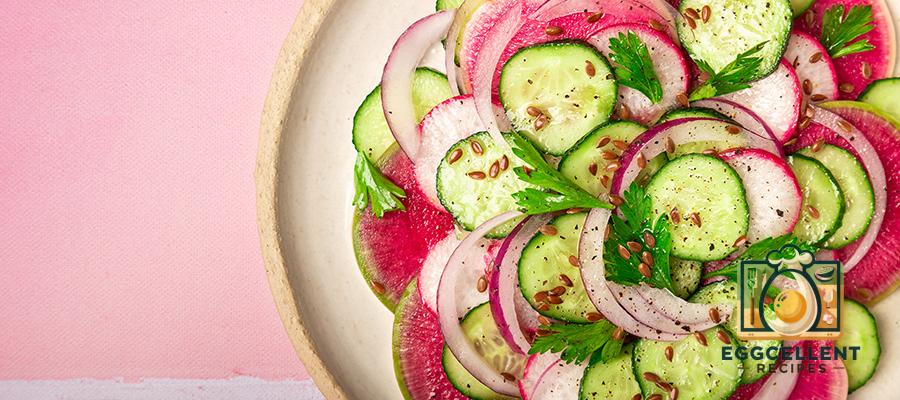Overview
What is an egg allergy?
An egg allergy is a type of food allergy where the immune system reacts abnormally to proteins found in eggs. It is one of the most common food allergies, especially in children. When someone with an egg allergy consumes eggs or foods containing eggs, their immune system releases chemicals that can cause various symptoms, such as skin rashes, digestive issues, respiratory problems, and even life-threatening reactions. Therefore, individuals with an egg allergy need to find suitable substitutes to avoid allergic reactions while still enjoying a wide range of dishes and baked goods.
Common symptoms of egg allergy
Egg allergy is a common food allergy, especially among children. When someone has an egg allergy, their immune system overreacts to proteins found in eggs, causing various symptoms. Common symptoms of egg allergy include skin reactions such as hives or eczema, digestive problems like nausea or stomach pain, respiratory issues such as wheezing or coughing, and in severe cases, anaphylaxis, which is a life-threatening allergic reaction. It is important for individuals with egg allergy to be aware of these symptoms and to avoid consuming eggs or foods containing eggs to prevent allergic reactions.
Importance of finding egg substitutes
Finding egg substitutes is important for individuals with egg allergies or those following a vegan lifestyle. Eggs are a common ingredient in cooking and baking, providing structure, moisture, and richness to recipes. However, for those who cannot consume eggs due to allergies or dietary restrictions, finding suitable alternatives is crucial. Fortunately, there are several healthy and nutritious options available that can mimic the functions of eggs in various recipes. By using these substitutes, individuals can still enjoy their favorite dishes and baked goods without compromising on taste or texture.
Egg Allergy Substitutes in Cooking
Plant-based alternatives
Plant-based alternatives are a great option for individuals with egg allergies who still want to enjoy cooking and baking. These alternatives provide a healthy and nutritious substitute for eggs, while also adding a unique flavor and texture to dishes. Some popular plant-based alternatives include mashed bananas, applesauce, silken tofu, and flaxseed meal. These ingredients can be used in a variety of recipes, such as pancakes, muffins, and cookies, to create delicious and allergy-friendly treats. Additionally, plant-based alternatives are often rich in vitamins, minerals, and antioxidants, making them a beneficial choice for overall health and well-being.
Dairy-based alternatives
Dairy-based alternatives provide a great option for individuals with egg allergies who also need to avoid dairy products. These substitutes can be used in various cooking and baking recipes to achieve similar results to those obtained with eggs. Some common dairy-based alternatives include yogurt, buttermilk, sour cream, and cream cheese. These ingredients not only add moisture and texture to dishes but also contribute to the overall flavor profile. By using dairy-based alternatives, individuals with egg allergies can still enjoy a wide range of delicious and nutritious meals without compromising on taste or texture.
Other protein-based alternatives
When it comes to finding alternatives to eggs in cooking and baking, there are several protein-based options to consider. One popular choice is tofu, which can be used as a substitute for eggs in recipes such as scrambled eggs or quiches. Another option is chickpea flour, which can be used as a binding agent in recipes like pancakes or cookies. Additionally, plant-based protein powders, such as pea protein or soy protein, can be used to add protein and texture to baked goods. These alternatives not only provide a source of protein but also offer a variety of flavors and textures to enhance your culinary creations.
Egg Allergy Substitutes in Baking
Flaxseed meal
Flaxseed meal is a popular substitute for eggs in cooking and baking. It is made from ground flaxseeds and has a nutty flavor. Flaxseed meal is rich in fiber, omega-3 fatty acids, and lignans, making it a nutritious choice for those with egg allergies. When mixed with water, flaxseed meal forms a gel-like consistency that can mimic the binding properties of eggs in recipes. It is commonly used as an egg replacement in vegan and gluten-free recipes, providing moisture and structure to baked goods. Additionally, flaxseed meal is a good source of plant-based protein, making it a versatile ingredient for those looking to add more protein to their diet. Overall, flaxseed meal is a healthy and convenient alternative to eggs for individuals with egg allergies.
Applesauce
Applesauce is a versatile ingredient that can be used as a substitute for eggs in cooking and baking. It adds moisture and helps bind the ingredients together, making it an excellent option for those with egg allergies. Additionally, applesauce adds a subtle sweetness to recipes, which can enhance the overall flavor of the dish. When using applesauce as an egg substitute, it is recommended to use 1/4 cup of applesauce for each egg called for in the recipe. This substitution works well in recipes such as muffins, cakes, and pancakes. So, next time you’re looking for a healthy alternative to eggs, give applesauce a try!
Silken tofu
Silken tofu is a versatile ingredient that can be used as a substitute for eggs in cooking and baking. It has a smooth and creamy texture, making it an excellent choice for recipes that require a binding agent. Silken tofu is rich in protein and low in fat, making it a healthier alternative to eggs. It can be blended into smoothies, used as a base for sauces and dressings, or even whipped up to create a vegan dessert. Whether you’re vegan, have an egg allergy, or simply want to try something new, silken tofu is a great option to consider in your culinary adventures.
Tips for Using Egg Substitutes
Understanding the role of eggs in recipes
Eggs play a vital role in recipes, serving as a binding agent, adding moisture, and contributing to the overall texture and structure of dishes. However, for individuals with egg allergies or those following a vegan diet, finding suitable substitutes is crucial. Fortunately, there are several healthy alternatives available that can mimic the functions of eggs in cooking and baking. These substitutes not only provide similar texture and structure but also offer additional nutritional benefits. Understanding the role of eggs in recipes and exploring alternative options allows individuals to enjoy their favorite dishes without compromising taste or dietary restrictions.
Proper measurements and ratios
When it comes to cooking and baking without eggs, it is important to understand the proper measurements and ratios. Eggs play a crucial role in providing structure, moisture, and leavening in many recipes. However, there are several healthy alternatives that can be used to achieve similar results. For example, mashed bananas or applesauce can be used as a substitute for eggs in recipes that require moisture and binding. Additionally, baking powder or baking soda can be used as a leavening agent in place of eggs. It is important to experiment with different substitutes and adjust the measurements accordingly to ensure the desired texture and taste in your dishes.
Adjusting cooking or baking time
When it comes to adjusting cooking or baking time for egg allergy substitutes, it’s important to keep a few things in mind. First, since egg substitutes can vary in texture and moisture content, it may be necessary to adjust the cooking or baking time accordingly. For example, if using a liquid egg substitute that is more watery than eggs, you may need to reduce the cooking or baking time to prevent the dish from becoming too moist. On the other hand, if using a thicker egg substitute, you may need to increase the cooking or baking time to ensure that the dish is fully cooked. Additionally, it’s always a good idea to closely monitor the dish as it cooks or bakes, and use a toothpick or cake tester to check for doneness. By being mindful of these factors and making necessary adjustments, you can still enjoy delicious and allergy-friendly dishes without eggs.
Benefits of Egg Substitutes
Healthier options
When it comes to finding healthier options for those with egg allergies, there are several alternatives that can be used in cooking and baking. One popular substitute is applesauce, which adds moisture and sweetness to recipes. Another option is mashed bananas, which can provide a similar texture and binding properties to eggs. Additionally, flaxseed or chia seed mixed with water can create a gel-like consistency that works well as an egg replacement. These alternatives not only cater to those with egg allergies but also offer added nutritional benefits. Experimenting with these substitutes can lead to delicious and allergy-friendly dishes.
Suitable for vegan diets
For those following a vegan diet, finding suitable alternatives for eggs can be a challenge. However, there are several options available that can be used as substitutes in cooking and baking. These alternatives not only provide the necessary binding and leavening properties but also offer a healthier option for individuals with egg allergies. From flaxseed and chia seeds to applesauce and mashed bananas, there are various plant-based ingredients that can be used to replace eggs in recipes. These substitutes not only add moisture and texture to dishes but also enhance the flavor profile. So, whether you’re making pancakes, cookies, or cakes, there are plenty of egg-free options to choose from that are suitable for vegan diets.
Reduced risk of foodborne illnesses
Reduced risk of foodborne illnesses: Egg allergies can be particularly concerning when it comes to the risk of foodborne illnesses. Eggs are a common source of Salmonella, a bacteria that can cause serious illness. By using egg allergy substitutes in cooking and baking, individuals with egg allergies can significantly reduce their risk of contracting foodborne illnesses. These substitutes provide a safe and healthy alternative, allowing people with egg allergies to enjoy a wide range of dishes without compromising their health.
Conclusion
Exploring egg-free alternatives
Egg allergies can be a challenge for individuals who love to cook and bake. However, there are plenty of healthy alternatives available that can be used in place of eggs. Exploring egg-free alternatives opens up a world of possibilities in the kitchen, allowing individuals with egg allergies to still enjoy their favorite dishes. Whether it’s using mashed bananas or applesauce as a binding agent, or substituting flaxseed or chia seeds mixed with water for a fluffier texture, there are numerous options to choose from. These egg-free alternatives not only provide similar results in cooking and baking but also add unique flavors and nutrients to the dishes. So, next time you’re in the kitchen, don’t let an egg allergy hold you back – get creative and explore the world of egg-free alternatives!
Experimenting with different substitutes
When it comes to cooking and baking, experimenting with different substitutes for egg allergies can open up a whole new world of possibilities. Whether you’re looking to replace eggs in a recipe due to dietary restrictions or simply want to try something different, there are plenty of healthy alternatives to choose from. From flaxseed and chia seeds to applesauce and mashed bananas, these substitutes can add moisture, binding properties, and even a hint of flavor to your dishes. So go ahead and get creative in the kitchen, and discover the endless options that await you when you start exploring different substitutes for egg allergies.
Enjoying allergy-friendly cooking and baking
When it comes to enjoying allergy-friendly cooking and baking, there are plenty of healthy alternatives to eggs that can be used. Whether you have an egg allergy or simply prefer to avoid eggs, there are several options available. One popular substitute is applesauce, which can add moisture and binding properties to recipes. Another option is mashed bananas, which can provide a similar texture and flavor to eggs. Additionally, you can use yogurt, silken tofu, or even flaxseed meal mixed with water as egg replacements. These alternatives not only cater to those with allergies but also offer a variety of flavors and textures to enhance your cooking and baking experience.






